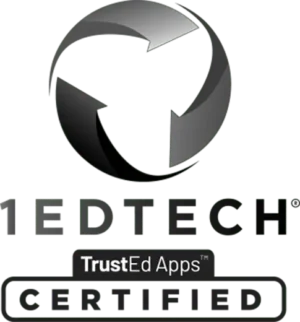
Having a growth mindset, versus a fixed mindset, is a quality everyone should practice and possess. Read on to learn a few tips and techniques for leading with and promoting a growth mindset in this month’s topic roundup.
Coaching With Growth Mindset
Dan Kreiness shares his experiences inspiring teachers to want to change and improve themselves professionally:
“Those with growth mindsets push themselves to improve something because they do not want to remain stagnant or unsuccessful. . . . The work of a good coach is not forcing change upon someone but rather coaxing them to want to change something about himself or herself.”
Growth Mindset in Teacher Development
Samuel Gradess relays three methods ICs can exercise to foster a growth mindset with teachers:
“In my short tenure as an instructional coach, I have found that a willingness to set clear goals and provide direct, actionable feedback in relation to those goals fosters a growth mindset for teachers. . . . These goals aim to increase the rigor of questioning that teachers use, how they vary the modes of participation from scholars, and how feedback is captured on paper or through whole class discussions.”
Being a Radical Learner
Jim Knight highlights a few characteristics of teachers with growth and fixed mindsets and the impact each has on their students’ learning:
“I believe the mindset teachers bring to school makes an enormous difference for both teachers and students. A teacher with a fixed mindset sees her abilities as pretty much what they are. Therefore, there’s really no point in professional learning since either we are born teachers or we are not. On the other hand, a teacher with a growth mindset views teaching as an opportunity for continual professional growth.”
Everyone Deserves to Grow
Keith Heggart provides four techniques for promoting a growth mindset culture in your organization:
“The crucial point for individuals is that these mindsets have a large impact upon our understanding of success and failure. Fixed mindset people dread failure, feeling that it reflects badly upon themselves as individuals, while growth mindset people instead embrace failure as an opportunity to learn and improve their abilities.”
Revisiting Growth Mindset
Carol Dweck believes we should legitimize a fixed mindset and learn our triggers to work through them in a growth-oriented manner:
“Let’s acknowledge that (1) we’re all a mixture of fixed and growth mindsets, (2) we will probably always be, and (3) if we want to move closer to a growth mindset in our thoughts and practices, we need to stay in touch with our fixed-mindset thoughts and deeds. . . . The growth mindset was intended to help close achievement gaps, not hide them.”
What Does Growth Mindset Mean for ICs?
Kristin Houser offers six fixed mindset examples and how to change them to be growth-focused:
“But the truth is, I’m not always growth mindset perfect. I get down on myself and can be hard on myself. I can sometimes be harsh in my judgment of teachers’ qualities and abilities. Now do I need to be perfect? Maybe not. But I can certainly be more aware, and take steps to get better. So what’s a helpful first step in this growth mindset building process? How about changing your thoughts and words.”
Stay Connected
News, articles, and tips for meeting your district’s goals—delivered to your inbox.






















